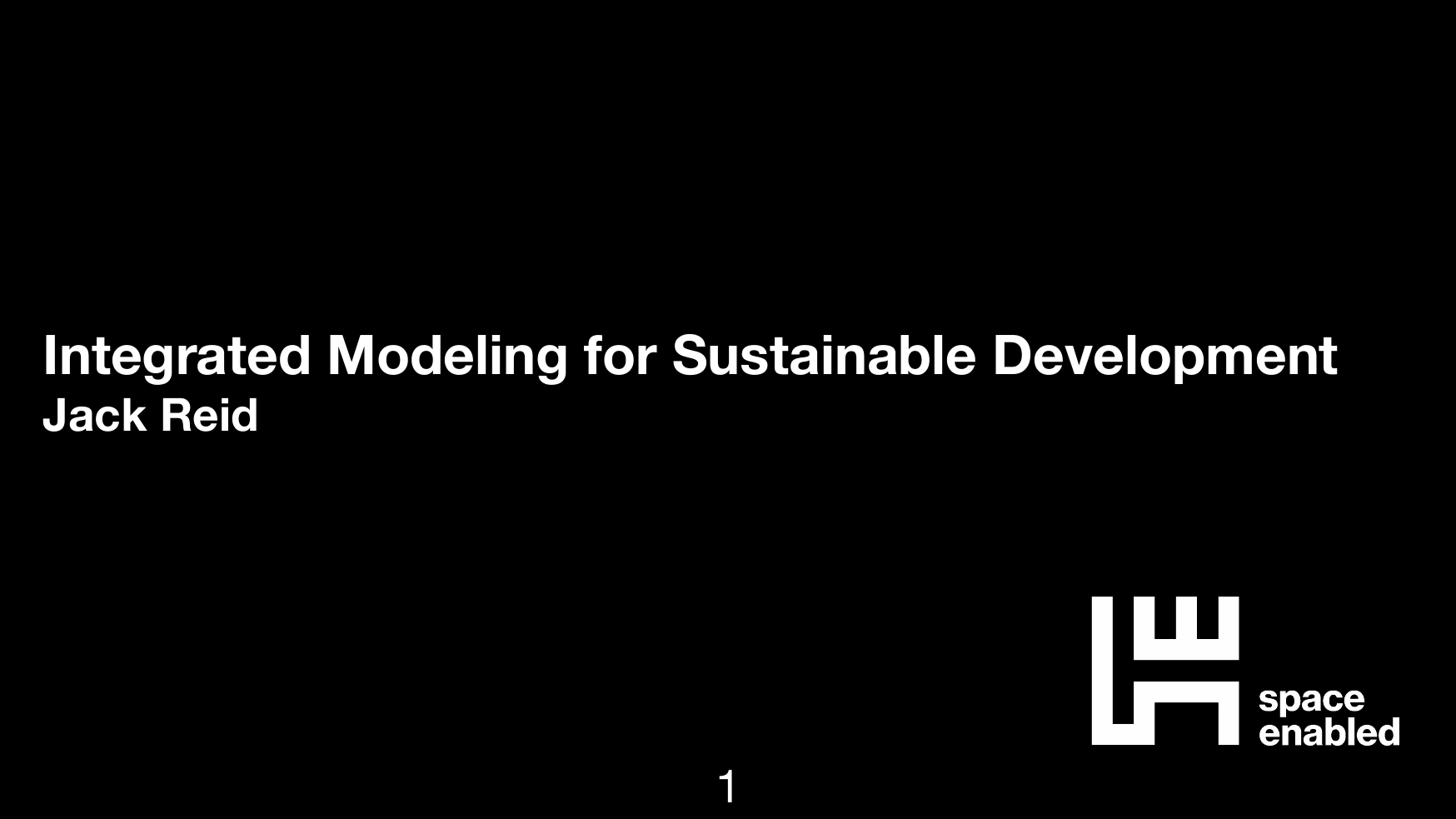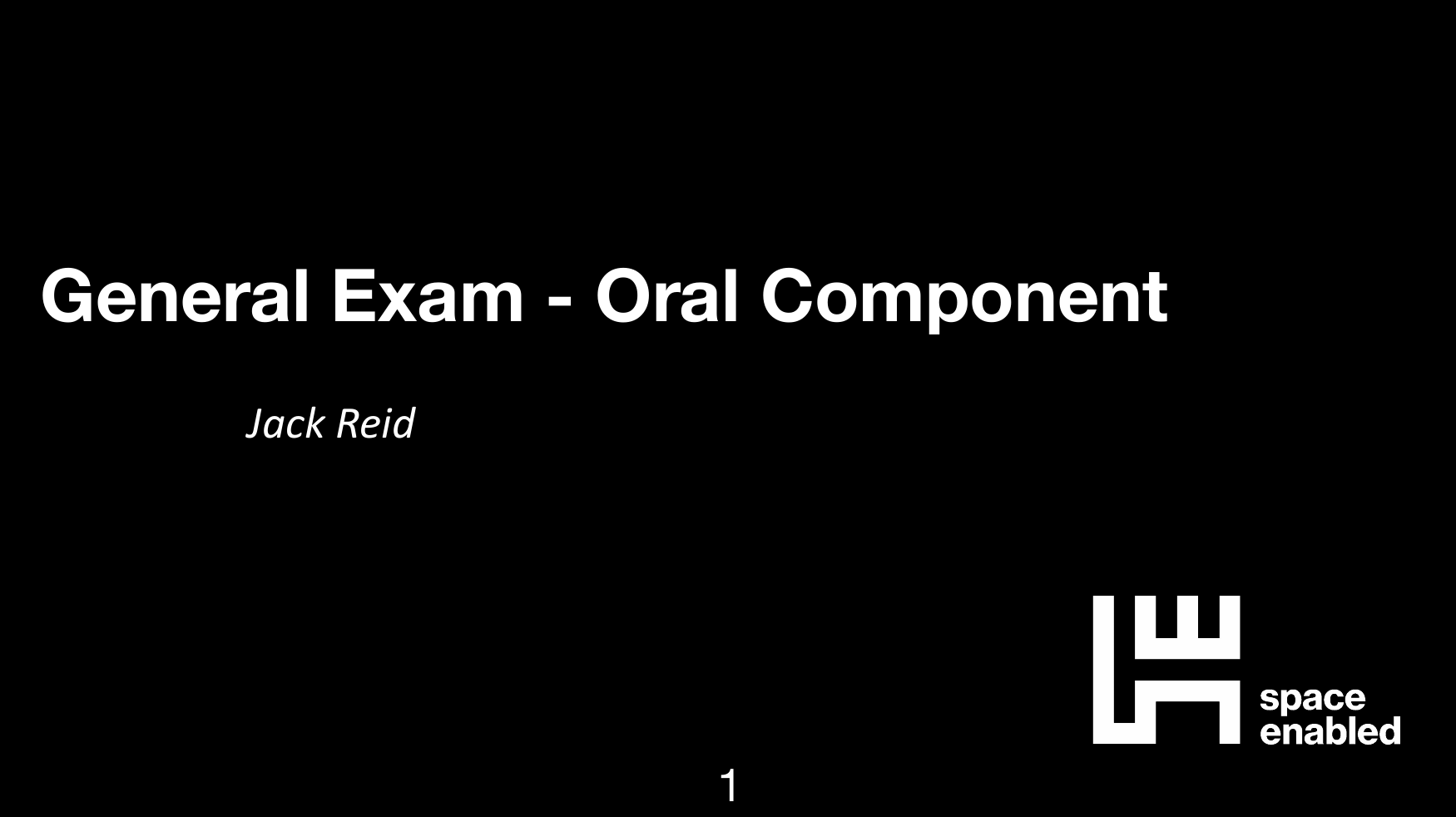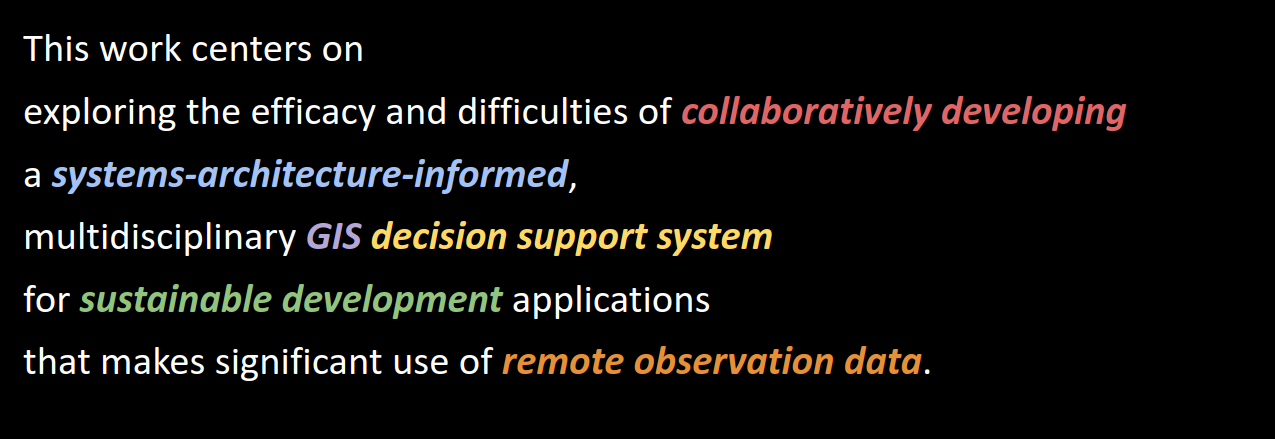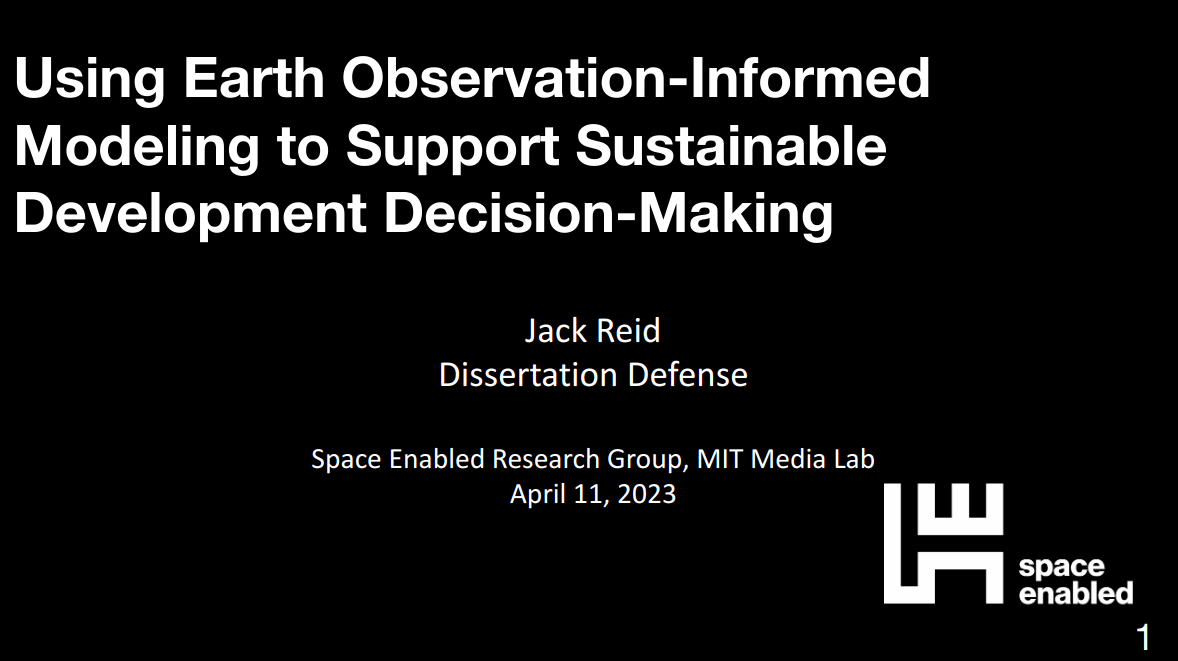Jack B. Reid
jack@jackbreid.com
Github profile: jackreid Hosted on GitHub Pages — Theme by mattgraham
My Doctoral Process
My doctoral dissertation centered on exploring the efficacy and difficulties of collaboratively developing a systems-architecture-informed, multidisciplinary GIS decision support system for sustainable development applications that makes significant use of remote observation. That’s a real mouthful, ain’t it? Well hopefully some of the following resources can start to explain what that this actually means.
Many of the my other projects are components of my doctoral work, particularly EVDT and Vida. Those respective pages have more details, but this page is largely focused on the doctoral process itself.
Overview of the MAS Graduate Degree Process
While the institution is called the MIT Media Lab, the actual associated academic department / degree is call Media Arts and Sciences (MAS). Like most (all?) graduate degrees, it has a number of concrete steps above and beyond required coursework.

Almost all MAS students start as Masters students and then, after completing that degree, move onto the PhD process. Since I had already completed two masters programs at MIT, I was allowed to petition to skip the MAS masters, thus those steps being grayed out. If you want more details on the masters steps, I suggest you take a look at the Media Lab website.
Doctoral Proseminar
Fall 2019
This is a pretty casual, once-a-week seminar, where one of the senior faculty members walks a class of PhD students through the MAS doctoral process. Recent alums and faculty all stop by to share advice, you read through a few previous dissertations (both from MAS and from other departments), and its a good opportunity to workshop your dissertation idea. All of this resulted in a short presentation that is one of my earliest articulations of what I wanted to work on.
General Exam
Spring/Summer 2021
The next major step is the General Exam. This is what most doctoral programs call “qualifying exams” or just “quals.” Unlike most departments, the MAS General Exam is not standardized and doesn’t even have a set curriculum. Pretty much every student in the department is pursuing their own weird mix of fields of science, art, and engineering, so there’s no real shared curriculum to test on. Instead, a student identifies a General Exam Committee (usually the same folks who will serve on the thesis committee) and works with each of them to identify three thematic areas: Primary, Technical, and Contextual. For each of these areas, y’all develop a reading list and define what form the written exam will take. Some people use classic, 2 hour written exams. Others are required to write a paper on the topic that will be submitted to a conference or journal. Others will do some kind of week-long take-home exam. It’s really whatever you and your committee members feel would be beneficial. All of this is packaged together into a General Exams Proposal that the department approves.
Here’s my General Exam Proposal. My reading lists are on the longer side, mostly because I am a pretty voracious reader and I had already read a good chunk of what ended up on the list. Even so, studying for this exam, in conjunction with my other reading (including audiobooks) and a pandemic environment, meant that I read 172 books in 2021, which will probably stand as my lifelong annual record.
Once I finished all the reading and note-taking, it was onto the written tests themselves. My Technical Area (Remote Observation of Natural and Social Phenomena) came first, and it had two components: a three hour written exam and a satellite mission proposal.

Next was my Contexual Area exam on Development, Data, and Justice in Socio-environmental-technical Systems. This took the form of a week-long writing exam in which I had to respond to two of five prompts. I chose to respond to two related questions. The first was on the controversies around the use of data in urban planning. The second was on data collection in data-poor parts of the world and its impacts.
The final written exam was my Primary Area, Socio-environmental-technical Systems Design, Modeling, and Decision-Making. This was structured as a 3 day, iterative writing exam, in which each morning I would be sent a list of prompts that I would need to respond to by the end of the day. The next day’s prompts would build upon my answers to that of the previous, encouraging to define my planned doctoral works and where it might lead after the completion of my PhD. Day 1 focused on definitions and challenges. Day 2 had me expand upon these and start to structure my thoughts around some concrete diagrams. Day 3 asked me choose a writing scenario and then pitch my research concept. I selected a systems engineering journal as the hypothetical audience.
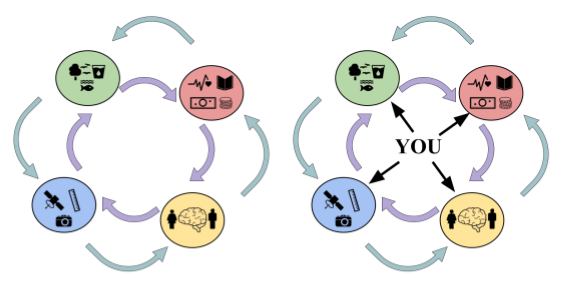
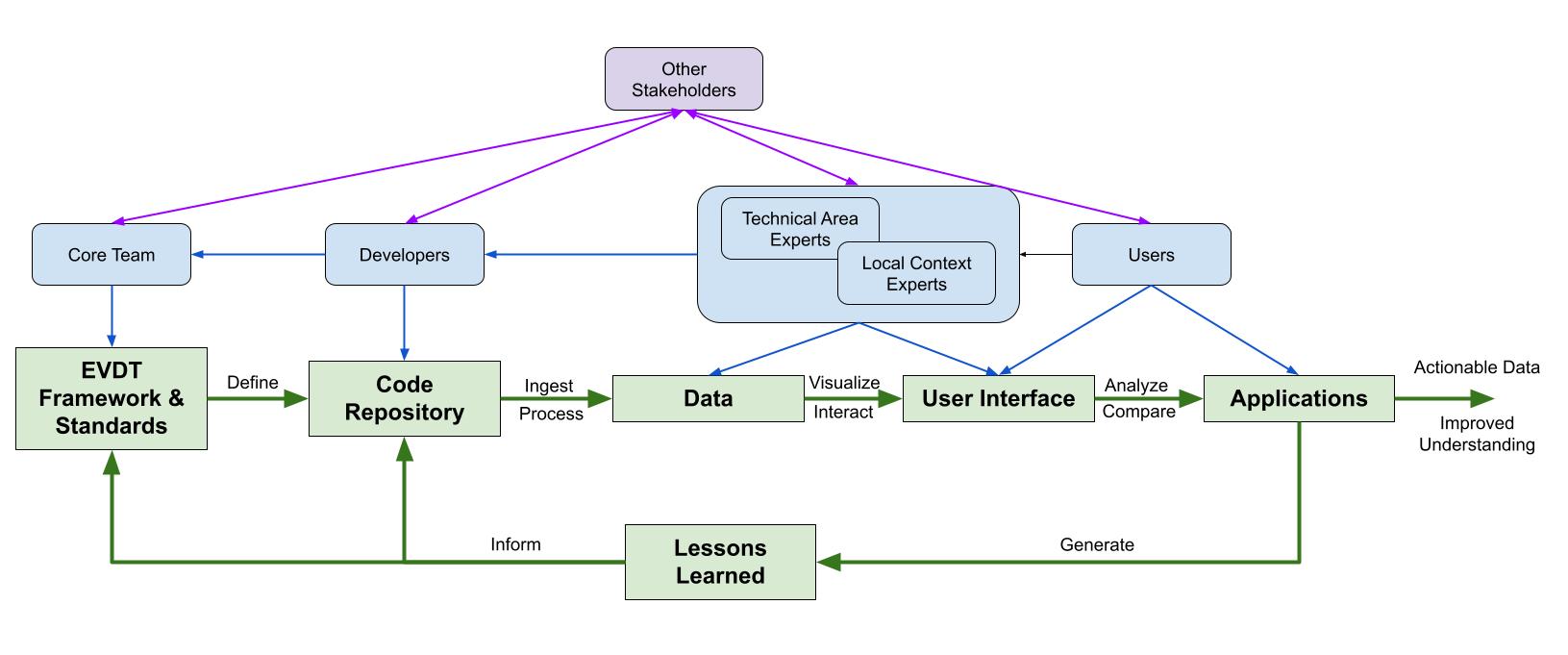
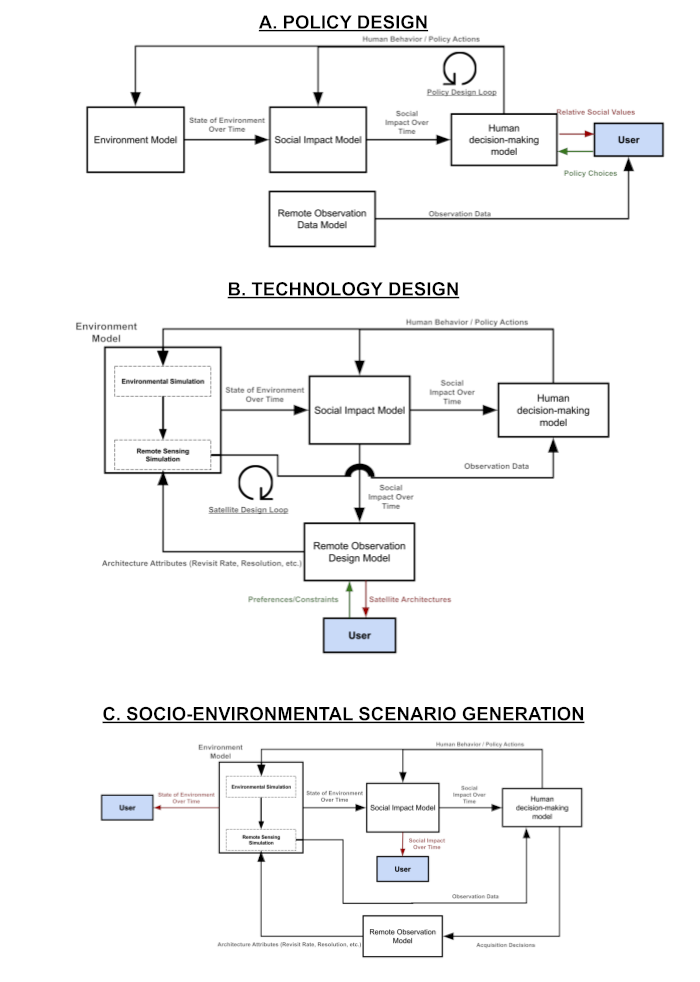
With each of the written components done, the General Exams are concluded with a joint oral exam, in which the student presents on what they have learned and the committee members (and anyone else from the Media Lab who wants to show up) quizzes them. This is typically held in person in a common area in the lab, but pandemic restrictions required mine to be held online. My slides are available here and a recording of the presentation and question period can be seen below.
Sometimes the General Exam Committee may require that additional work is required to demonstrate that the student actually learned the required material. Sometimes this can mean taking a particular class or even re-doing their oral exam entirely. In my case, one of my committee members wanted me to clearly explain where and how the term public participation geographic information system (PPGIS) arose from, since I bungled a question in this vein during the exam. To satisfy this, I wrote up a brief history of the origins of the subfield.
Doctoral Thesis Proposal/Critique
Winter 2021/2022
With the General Exams out of the way, the next step in the PhD process is to clearly develop a proposal for the dissertation work and to present it to one’s thesis committee and to the Media Lab as a whole. This involves both a written document of variable length and a presentation. My written proposal is available here (green text indicates some later revisions). It should be pretty clear how my General Exams directly fed into this piece. Similarly, the presentation slides were developed out of the oral component of my General Exams.
One of the key components of a thesis proposal is the research questions/deliverables, as this define what you need to complete in order to finish the doctoral program.
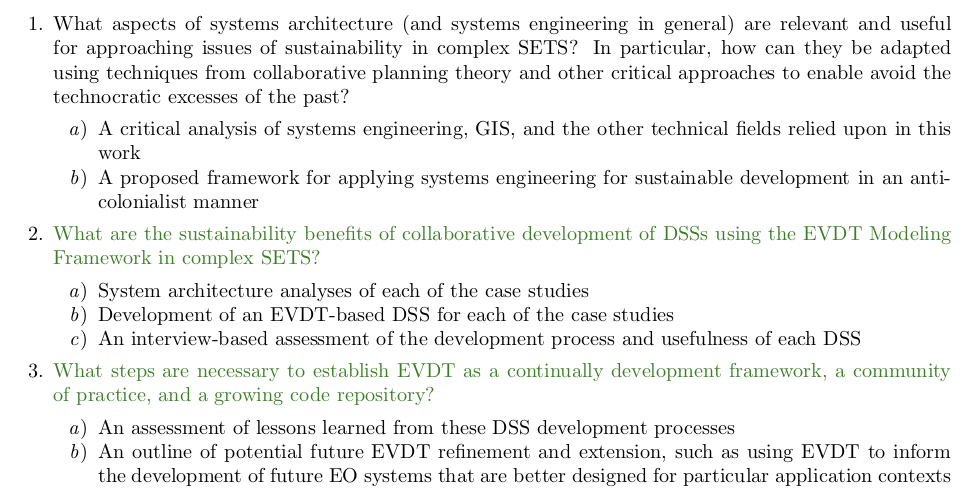
Doctoral Thesis & Defense
Spring 2023
For the past year, I have been writing the actual dissertation/thesis (they are used interchangeably). The defense occurred in April 2023 and the thesis was signed in May 2023. The slides that I used for the defense are below and the final thesis itself is available here.
